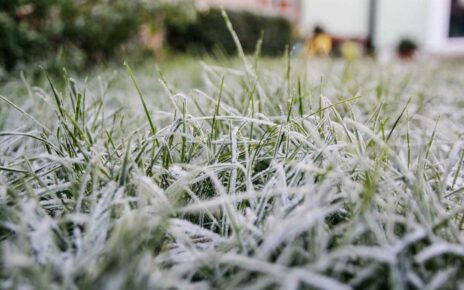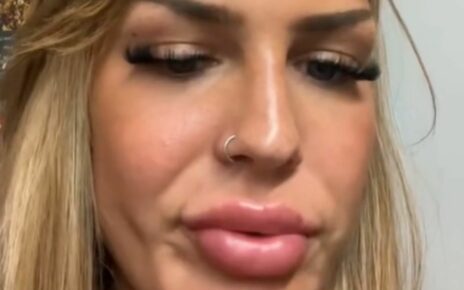QUEEN Victoria ruled Britain for over 60 years, and the era was celebrated for huge industrial and social developments.
But just how much do you know about how the Victorians lived day-to-day?
Just like today, they obviously had to keep on top of the chores and cleaning, and had significantly less resources to do so.
Fantastic Service's domestic cleaning expert and supervisor Petya Holevich says: 'Victorian-era cleaning methods often relied on simple and natural ingredients because of the limited availability of commercial cleaning products during that time.
"Surprisingly, many of them are still effective today!"
Here, Petya shares the interesting – and sometimes very unusual – cleaning methods our ancestors in the 19th century would have used to keep their house spick and span…
READ MORE CLEANING TIPS
I’m pro organiser – 10 storage ideas that are outdated & make you home messy
I’m a cleaning fan, there’s 3 places you should NEVER use a microfiber cloth
Egg whites to polish
In the Victorian times, it was common to use egg whites to polish valuable items.
Petya says: "Victorian homes often used beaten egg whites to clean and polish silverware.
"This was because the proteins in them can help lift tarnish and bring back the silver's lustre."
Salt for scrubbing
We obviously have some pretty industrial strength scourers and chemicals to help scrub hard-to-remove stains on pans today, but the Victorians had to be a lot more creative.
Most read in Fabulous
Harry makes moving speech about son Archie on new Netflix doc
Harry hits out in doc & says he didn’t have support network for his trauma
Suits boss bizarrely claims Royal Family 'asked to edit Meghan Markle's script'
Friends can turn into money spinners as hobbies and passions are shared
Petya says: "Coarse salt was used as an abrasive for scrubbing surfaces such as cast iron pans and grates.
"It's still effective today for tackling tough stains and grime."
Another technique they were said to have used was crushed eggshells too – although it's important to ensure you always follow pan care instructions to avoid damage.
Baking soda
Also known as bicarbonate of soda, baking soda was a staple in Victorian households for cleaning and deodorising – and it's still popular today.
Petya says: "It's excellent for scrubbing surfaces, removing stains, and eliminating unpleasant odours.
"You can use it to clean sinks, and counters, and even as a gentle abrasive for scrubbing pots and pans.
"However, still be mindful of what you clean with it because, for example, this ingredient can cause damage to the upper protective layer of marble and granite surface over time and eventually leave scratches.
"Baking soda can also be too hard on some finishes or sealants on wood furniture and hardwood flooring and wear it away.
"Also, avoid cleaning glass surfaces with it as it’ll scratch them and gold- and silverware as it can cause it to lose its patina and tarnish quicker."
Vinegar
Vinegar was another go-to cleaning agent during the Victorian era.
Petya explains: "Because of its acidic properties, it was effective for cutting through grease, removing mineral deposits and disinfecting surfaces.
"However, it’s still recommended to dilute it by mixing it with water to create an all-purpose cleaner."
Lemons
When life gives you lemons… Clean with them!
Petya says: "Lemon juice's natural acidity makes it a great cleaner and deodoriser.
"It can be used to clean glass, polish brass and copper, and remove stains from fabrics.
"If you combine it with salt, you’ll even create a paste that can tackle tougher stains."
Polishing potions
Instead of polish, the Victorians would use Castile soap – an oil based hard soap.
Peta says: "Castile soap, made from vegetable oils, was a common cleaning product in Victorian times.
"It's still a versatile and gentle option for cleaning delicate surfaces, such as wood, as well as for making homemade cleaning solutions.
"Victorian households also often used a mixture of beeswax and olive oil to polish and protect wooden furniture.
"This was because the mixture can restore shine and provide a protective layer for wood surfaces.
Cream of tartar
Petya says: "Cream of tartar, a byproduct of wine production, was used to clean and brighten surfaces.
"It's still effective for removing stains from porcelain, and can also be used to create a paste for scrubbing when mixed with baking soda."
Essential oils
Obviously there was no Febreeze back then, but that didn't mean posh Victorians didn't want their houses to smell nice.
Read More on The Sun
I’m an ex-paramedic – the dangerous food that acts like a plug on a child’s airway
Peter Andre reveals sad ‘real reason’ he never has birthday parties
Petya says: "Victorian households often used essential oils, such as lavender and pine, for their pleasant scents and antibacterial properties.
"Even now, it’s a great practice to add a few drops of an essential oil of your choice to your cleaning solutions for a natural fragrance."
Source: Read Full Article
















